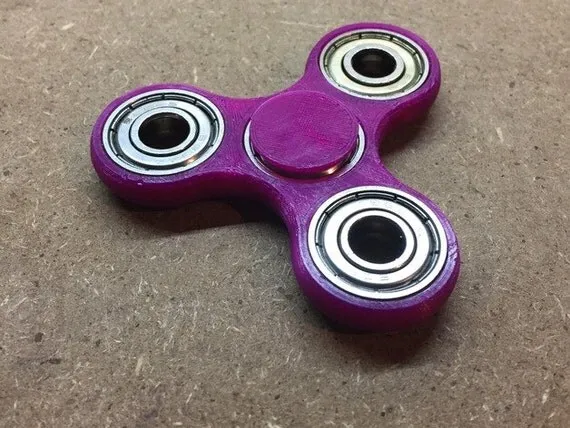
I just read an article on Interesting Engineering about the inventor of the fidget spinner, a small toy held in the hand and spun around a hub to release nervous energy. According to the article, which I won't link to because I don't want to give it the SEO points, the toy is a worldwide hit, but the inventor hasn't profited from it. The article goes so far as to state in its tag line that this is due to her lack of patent on the product:
The woman behind the worldwide phenomenon [ ... ] isn't making a penny from them -- all because she couldn't afford the patent fee.
Now, I'm generally an opponent of intellectual property (IP), since my thoughts on IP conclude that it is far more likely to harm creativity than incentivize it. Initially I was inclined to move on since the article was clearly based on invalid premises, but some small voice of reason in my head said maybe I would benefit from reading it and seeing if I could spot the error.
I quickly diagnosed the tag line to be a direct contradiction with the article, as the article reluctantly points out that she held a patent for more than 8 years, but apparently couldn't sell the product because she couldn't spare $400 to renew said patent. I say it points this out reluctantly because rather than lay this information out directly, they hid it by only saying that the woman who invented the toy did so more than 20 years ago, and lost her patent on it in 2005 when she could not afford to pay a $400 fee to renew it. If it's 2017 and she invented the toy more than 20 years ago, it must have been before 1997, and if she had a patent until 2005, she must have had it for more than 8 years, from '97 to '05, during which time it made her absolutely nothing since she couldn't afford to renew it for $400. If the patent had been in the tiniest degree profitable, she would have gladly dropped the four benjamins to keep the party going.
So possibly the most irrational conclusion possible is that holding the patent for more years would have made her rich, yet this is exactly the article's conclusion (and introduction). This conclusion seems to be an application of the principle, If what you're doing isn't working, keep doing it. Right, obviously it must be an effective strategy; if it weren't, it would be working by now!
Perhaps it's time we dropped that principle. Practice has demonstrated time and time again that intellectual property is not the optimal strategy to reward creativity. It works sometimes for some people, but far more effective models have already been pioneered. I know your school teaches you (without ever directly saying) that IP is the only way to go and any other ideas can be safely ignored. I know your government tells you IP is necessary and civilization would collapse without it (even though civilization was invented without it and, historically, has thrived most successfully in its absence). But none of it is true.
Articles like this may accidentally propagate the very ideas that impoverish the creatives we all (especially opponents of intellectual property) want so much to reward. IP was a bad idea. It's time to lay it to rest. Using IP to reward creativity is like sticking a knife in your foot to fix an ingrown toenail. In theory it's supposed to help, but in practice it just makes the problem worse.
That is all. Thanks for reading!
This post was written for you by @modprobe in the hopes that it makes your day just a bit better. Intellectual property is a lie; use the text of this post however you want, after all, I wrote it for you! If you post it elsewhere, though, you get extra awesome points for mentioning it in a comment here!